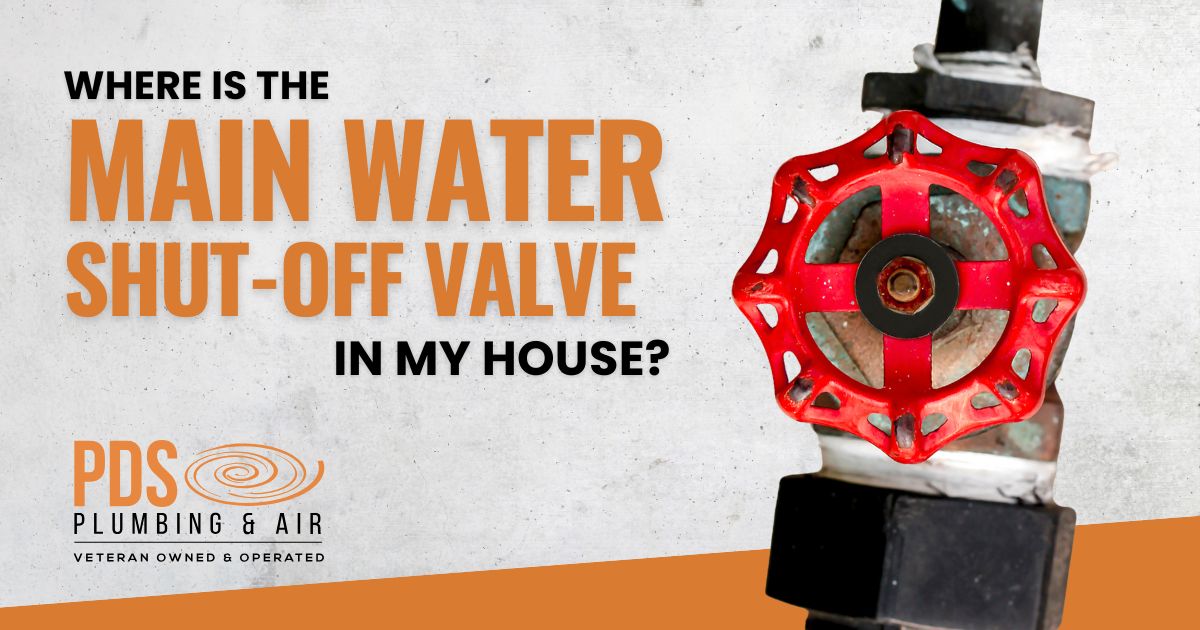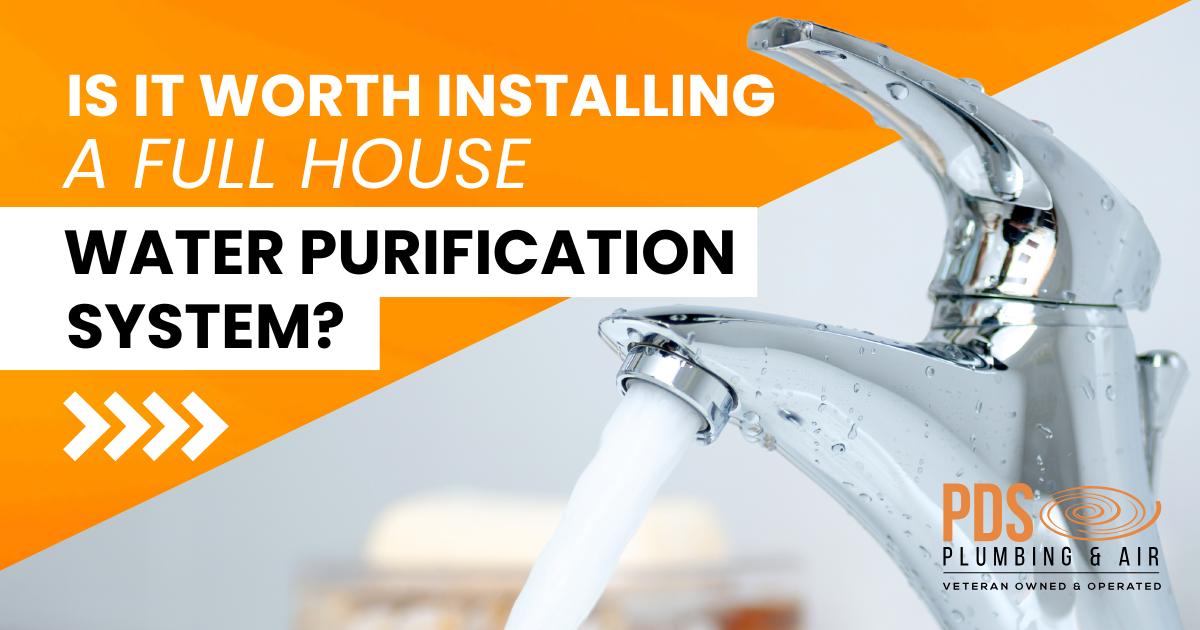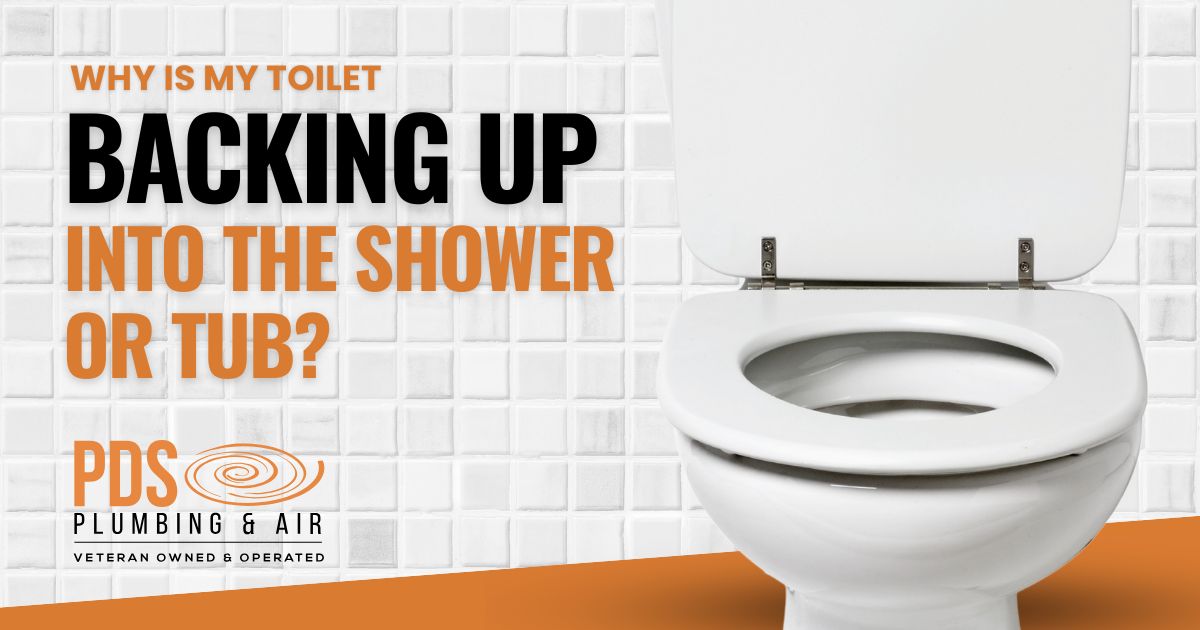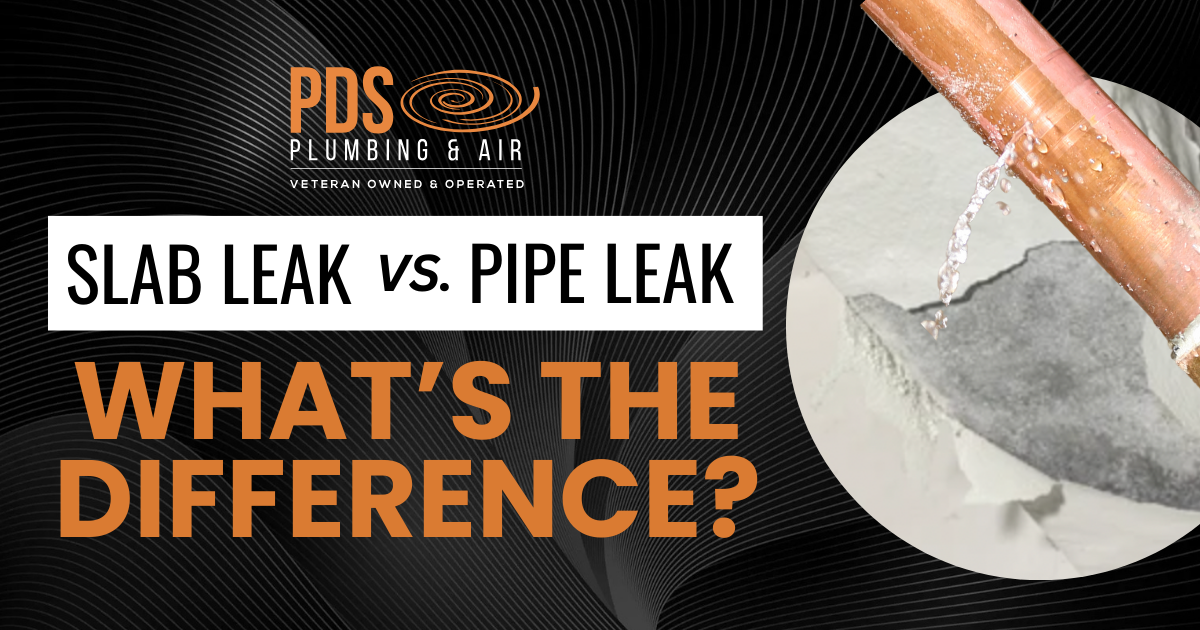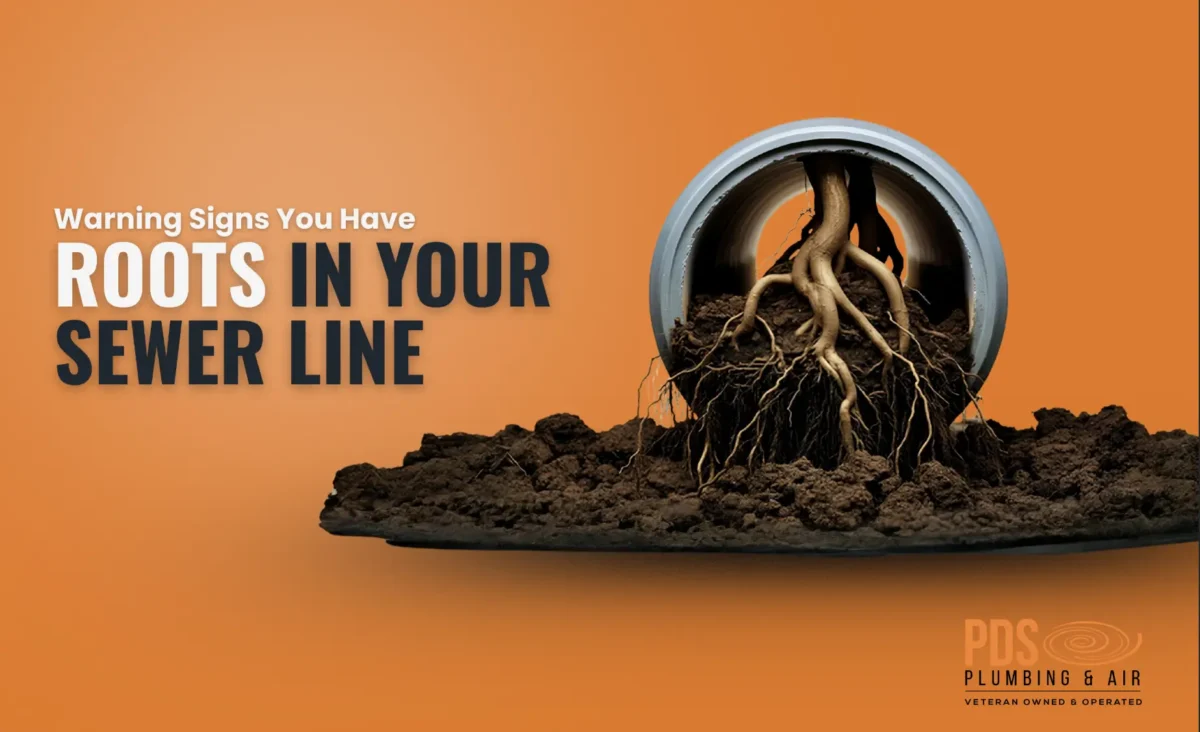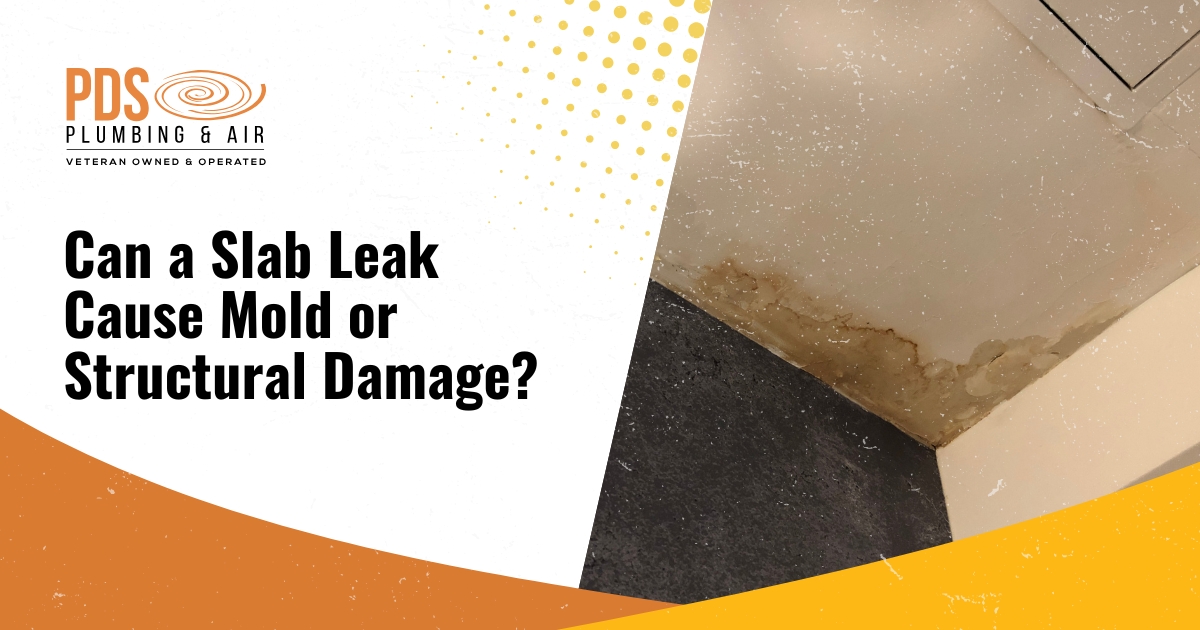
A slab leak refers to leaks beneath a concrete foundation. These leaks are often difficult to detect or verify until enough water accumulates to cause mold growth and structural damage. Left unresolved, a slab leak can quietly compromise your home’s health and your family’s safety. Understanding slab leak symptoms and how they relate to both mold and foundation issues is the first step toward protecting your home and knowing when to call a plumber from PDS Plumbing and Air.
Common Slab Leak Symptoms Homeowners Shouldn’t Ignore
Early signs of a slab leak may be subtle, but they can worsen and cause greater damage if left unattended. Recognizing these symptoms helps you avoid delaying repairs.
Cracks in the walls or foundation
New or widening cracks in your foundation, interior walls, or ceilings can signal a slab leak. As water seeps into the surrounding soil, it can erode and shift the soil, stress the foundation’s structure, and cause cracks inside or outside your home.
Puddles or water damage
Puddles on the floor, warped flooring, water stains on baseboards, or damp carpeting without an obvious source may point to an underground leak. Water may also rise through expansion joints or penetrate the slab, soaking the materials above.
Low water pressure
A drop in water pressure may suggest that a leak is allowing water to escape beneath your foundation instead of reaching your faucets and fixtures. If you notice weaker flow at your sinks or showers, the issue may be in the supply line below your home.
Sounds of running water
The sound of water flowing without taps or appliances in use may signal a slab leak. The sound may be consistent but subtle, such as a faint trickle, gurgle, or hiss.
Warm or damp spots on the floor
A localized warm spot on your floor may stem from heat from an underground hot water pipe leak. Warmth may be more obvious on tile or hardwood flooring.
Standing water near foundation walls
Water pooling around the exterior base of your home without rain, irrigation, or another source suggests a slab leak that’s pushing water outward. Water may gradually seep from the leak under the slab and collect at the foundation’s edge.
High water bills
A continuous flow from an undetected slab leak may cause your water bills to suddenly spike. If your household water usage hasn’t changed but your bill has increased, a hidden leak may be the source.
Musty odors
Trapped moisture beneath a slab encourages mold growth. Even if it isn’t visible, a musty or earthy odor can indicate mold under flooring or behind walls.
Can Mold Grow on a Concrete Slab?
Concrete is porous, and its ability to absorb and retain moisture makes it an attractive spot for mold. If a slab leak occurs, the concrete absorbs water long enough to encourage mold to grow.
Once established, mold on concrete may go undetected until it expands underneath flooring or inside wall cavities. When odors, stains, or damage become noticeable, mold spores may have already spread throughout your home. This can be hazardous to your health, especially in the case of black mold on a concrete slab, since it’s especially toxic and difficult to remedy.
Structural Risks of an Undetected Slab Leak
Water escaping from a slab leak interacts with soil, the concrete slab, and the structures above it, and the resulting water damage may threaten your home’s structural integrity.
When water pools under the slab, it saturates, erodes, and displaces the surrounding soil. Clay-heavy soils expand and shrink as they become wet or dry, and this repeated cycle puts uneven pressure on the slab. These shifts can destabilize the slab and result in cracks.
An unstable foundation may also cause other structural components to become misaligned, such as framing and load-bearing walls. When the slab shifts, drywall may crack or bow, doors and windows may not open or close smoothly, and walls can develop gaps where they meet the ceiling.
How to Confirm a Slab Leak
If you notice warning signs, use these strategies to confirm the presence of a slab leak:
- Monitor your water meter: Turn off all water sources in the house, including faucets, appliances, and irrigation systems. Take a meter reading and wait for an hour without using water — if the reading changes, there’s likely a leak somewhere in your plumbing system.
- Check your water heater: If your water heater runs constantly, especially if you’re not actively using hot water, there may be a leak in the hot water line beneath your slab. The heater in this case must work nonstop to make up for hot water losses.
- Call a professional: For an accurate diagnosis, schedule an inspection with a licensed plumber. Professionals use specialized leak detection tools, such as thermal imaging and video camera inspections, to pinpoint the leak’s location without digging up your basement.
Preventing Mold and Damage from Slab Leaks
Proactive steps can limit damage from a slab leak or help you avoid a leak altogether. Knowing what to look for and addressing minor problems before they worsen lowers the risk of structural damage and mold from slab leaks. Try these preventative tips.
Watch for early signs
Staying aware of slab leak signs, such as spiking water bills or musty odors, helps you act before damage spreads. Early detection allows for small, targeted fixes rather than more significant repairs or excavation.
Improve outdoor drainage
Slab foundations depend on stable soil, which in turn relies on proper drainage and environmental conditions. Direct rainwater away from your foundation’s exterior perimeter with well-maintained gutters, extended downspouts, and properly graded soil. In some cases, installing a French drain or sump pump can reduce soil saturation near the foundation.
Insulate vulnerable pipes
Pipes embedded in or running beneath slabs can sweat or freeze in certain conditions. Insulating them helps reduce condensation and lowers the chance of cracking or rupture from temperature swings, especially in homes with older plumbing.
Address plumbing issues promptly
Schedule plumbing repairs as soon as problems appear, and have a professional check any suspected issues, even if they seem minor. Early repairs lower stress on your system and reduce the chances of an underground leak.
Schedule routine plumbing inspections
Regular plumbing inspections protect your home and plumbing system and provide added peace of mind, particularly for homes with older piping or previous slab issues. A professional plumber verifies the integrity of your plumbing and can detect early leaks before they escalate into water damage or mold.
Get Professional Slab Leak Repair Before Damage Spreads
Delaying action increases the risk of mold on or beneath your slab, structural misalignment, and expensive long-term repairs. If you suspect a slab leak, schedule a professional inspection. Protect your home and contact us at PDS Plumbing and Air to schedule inspections and repairs with our licensed plumbing team.



